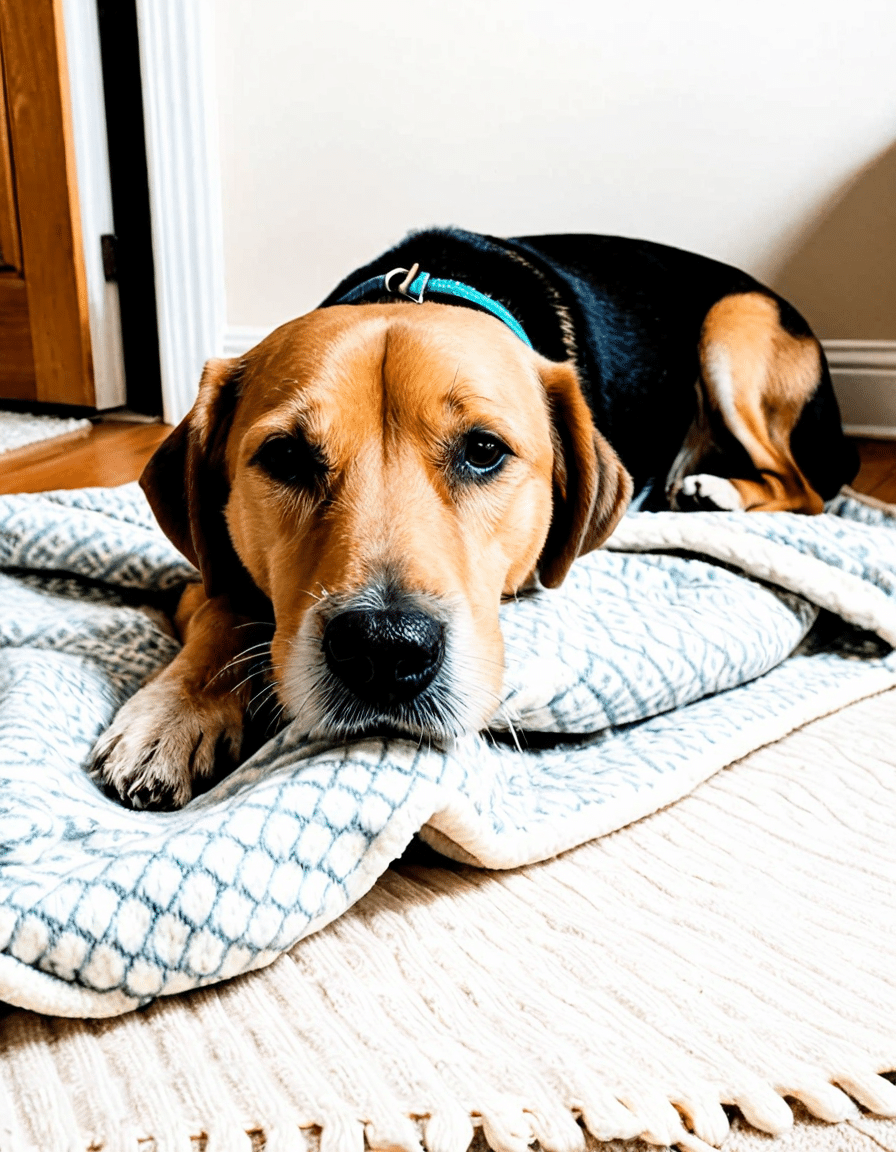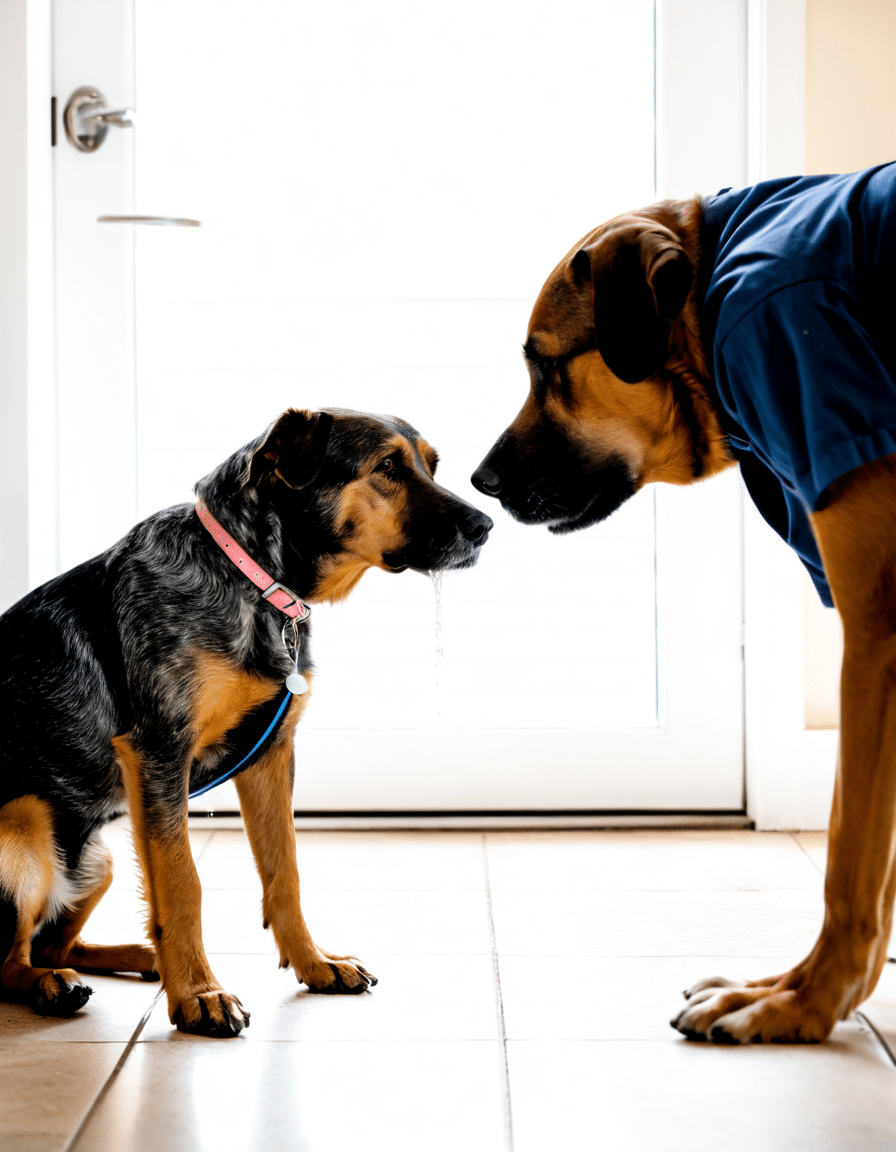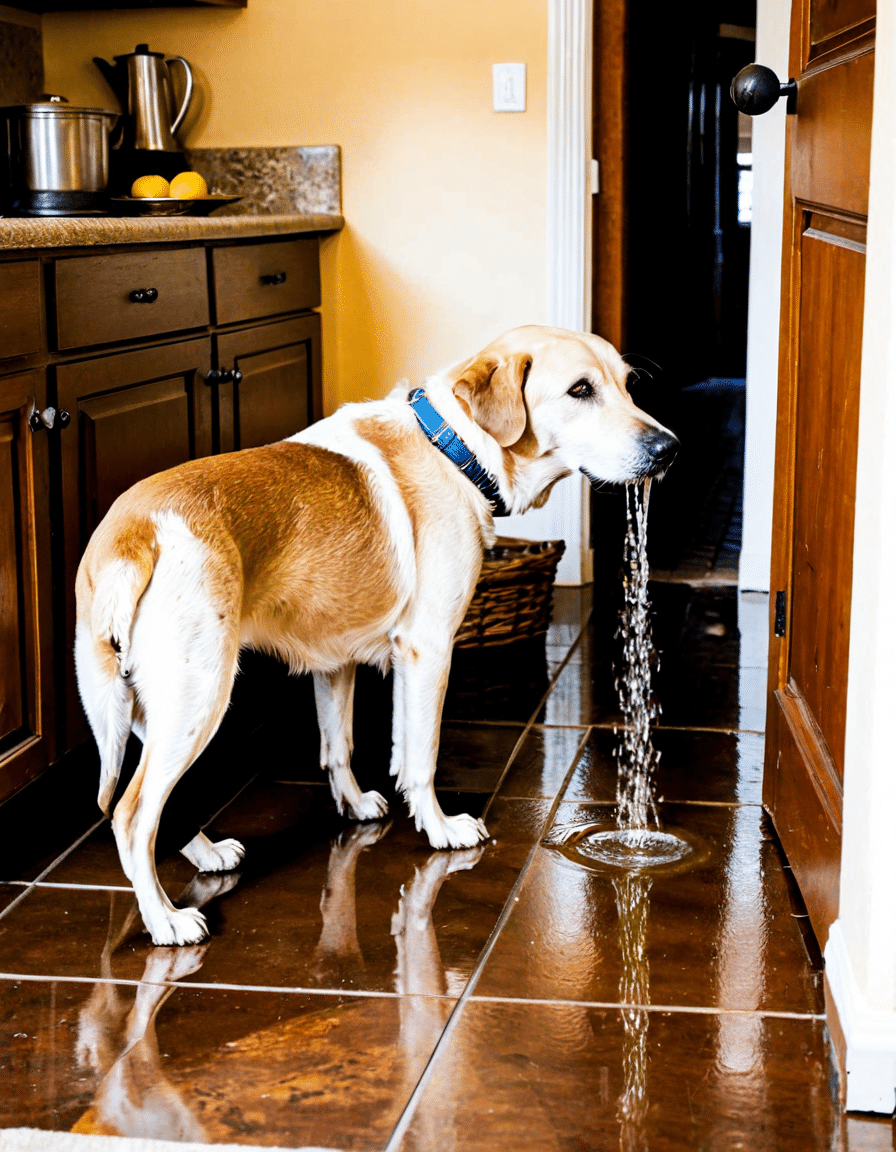When our furry companions reach their golden years, we often face some tough changes. One of the most concerning issues is when an old dog starts peeing in the house. It can leave you feeling worried and confused—especially when you wonder, “Is it time to put down my dog?” But before jumping to any conclusions, it’s crucial to understand that accidents in the house don’t always mean it’s time to say goodbye. In this article, we’ll explore the reasons behind your old dog wetting in the house and what you can do about it.
## Old Dog Peeing in House: Is It Time to Say Goodbye?

Understanding the Implications of Old Dog Wetting in House
When pondering whether it’s time to put down your old dog, it’s essential to assess their overall quality of life. Frequent accidents can make dogs feel ashamed or anxious, which might worsen behavioral issues. Take note of situations where your dog has peed in the house; understanding their limitations can shed light on how best to help them.
Pay attention to their behavior, social engagement, and health status. If an old dog peeing in the house brings added stress, it might exacerbate underlying conditions. This means assessing all aspects—physical, mental, and emotional matters greatly for these treasured companions.
Strategies for Managing Dogs That Pee in Their Sleep
Some dogs struggle with peeing in their sleep. Differentiating between natural age-related occurrences and additional medical concerns is critical. Waterproof dog beds—like PetFusion’s Ultimate Dog Bed—can help manage messes and provide comfort. If your dog is continually having sleep accidents, consider exploring medical interventions or dietary changes that may alleviate these issues.
Setting a bedtime routine can also help. An evening potty break can ensure your dog empties their bladder before sleeping. You’ll both rest easier knowing that accidents are less likely to occur.

Dealing with Dog Pooping in the House
If your old dog starts pooping in the house, it can be just as concerning and frustrating as urinating indoors. Similar to peeing, this behavior can stem from dietary changes, gastrointestinal disorders, or cognitive decline. Discussing these changes with your veterinarian is essential. They can offer insights and recommendations that ultimately enhance your pet’s quality of life.
Be consistent with bathroom schedules, and if necessary, adjust your dog’s diet. Ensuring your dog receives frequent opportunities for outdoor bathroom breaks can be key in preventing accidents in the house.
Moving Forward: Assessing the Right Decision
Deciding whether to euthanize your old dog solely based on accidents in the house can be a hasty choice. It’s crucial to explore medical and behavioral explanations first. Many resources exist to support pet owners facing these challenges. Seek local dog behaviorists, veterinary specialists, or pet owners’ support groups for guidance.
Maintaining your dog’s overall health, exploring training options, and making environmental adjustments can significantly improve their life quality. Accidents don’t necessarily mean the end is near—sometimes, they’re just bumps on the road.
Managing an aging dog who pees or poops in the house can feel overwhelming. It’s imperative to take a comprehensive view of the situation. Focusing on your dog’s need for understanding, comfort, and stability is vital as they transition to their later years. By looking into potential solutions and being patient with their evolving needs, you may find that caring for your furry friend brings more joy than despair. After all, they’ve spent their lives loving and being there for you, and they deserve the same in their golden years.
Old Dog Peeing In House Time To Put Down
When you have an old dog peeing in the house, it’s a real heart-wrencher. Many owners grapple with the question of “Is it time to put down my furry friend?” Understanding the reasons behind this behavior is crucial. It could be linked to various health issues such as bladder infections or cognitive dysfunction. Fun fact: Just like humans can struggle to recognize when to go, senior dogs can experience confusion, especially if they’ve been well-trained for years—think of it as their version of the “senior moments” we all have.
Signs to Consider
If you’re in a tough spot, look out for additional signs besides just peeing. Are they drinking more water than usual? Changes in appetite? You might be surprised to learn that conditions affecting a dog’s bladder can sometimes mirror changes we see in other pets, like with a blue point Ragdoll cat. Interestingly, just as you’d look for signs of distress in your cat, those signs can also manifest in dogs dealing with age-related issues. Remember, it’s not uncommon for older pets to struggle with their physical capabilities.
Making the Heartfelt Decision
Deciding whether to put down an old dog isn’t an easy road to travel. On that journey, assessing their quality of life is key. Ask yourself: Are they still enjoying life? Can they engage in their favorite activities, or do they seem more like the urban cowboy cast—stuck in a repetitive loop without joy? Sometimes, other factors can influence behavior, like changes in the household or diet that can affect everything from bathroom habits to overall mood. Speaking of diets, ensure you’re not giving them anything that’s going to upset their stomach, like something that makes you wonder, “Is honey flammable?”
The Final Steps
Ultimately, it may come down to the final steps of care and comfort. Have you considered consulting with your vet about what you’re observing? They can provide tailored options that suit both you and your pet’s needs. If you find yourself reminiscing and caring for your furry friend as they approach their twilight years, don’t forget to offer them love, warmth, and maybe even a cozy pair of flamingo jeans—if they have some for their comfort!
Having an old dog peeing in the house can usher in a lot of emotions, but don’t let that cloud your judgment. Reflect on the good times, their quirky personality like a black cat’s charm, and how to make their twilight years as joyful as possible. And remember, this tricky stage can be navigated with some grace if you muster enough information and support.



